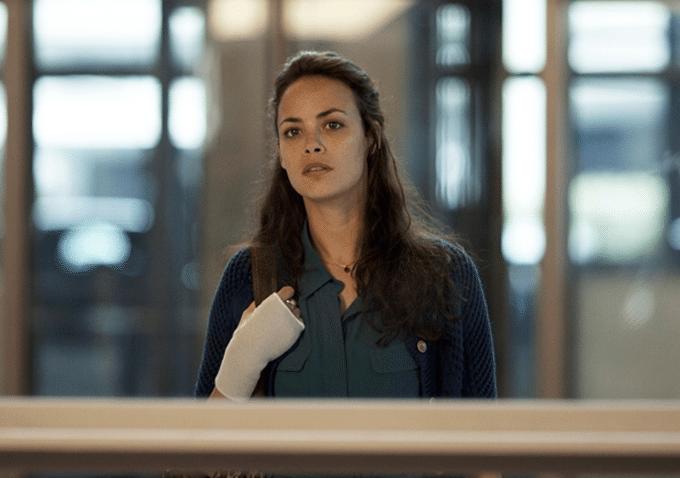
 “The Past” opens almost exactly where “A Separation” left us two years ago. In the latter, a husband and wife on the brink of divorce are left wondering where the future will take them; while the former opens with the arrival of Ahmad (Ali Mosaffa) in Paris, where he’s come back to sign divorce papers from Marie (an extraordinary Bérénice Béjo). The first scene takes place in an airport and might as well sum up the entire film, as we see the former lovers trying to communicate through a glass partition that makes them look like fools signing and gesturing at each other without making much sense.
“The Past” opens almost exactly where “A Separation” left us two years ago. In the latter, a husband and wife on the brink of divorce are left wondering where the future will take them; while the former opens with the arrival of Ahmad (Ali Mosaffa) in Paris, where he’s come back to sign divorce papers from Marie (an extraordinary Bérénice Béjo). The first scene takes place in an airport and might as well sum up the entire film, as we see the former lovers trying to communicate through a glass partition that makes them look like fools signing and gesturing at each other without making much sense.
While at Marie’s house, Ahmad is unexpectedly given the role of mediator between her and her oldest daughter Lucie (Pauline Burlet) who vehemently opposes her mother’s relationship with her new boyfriend Samir (Tahar Rahim) sure that she knows a reason to keep them apart. The issues of miscommunication from “A Separation” are carried here and infused with subtle melodrama as these characters come to terms with the guilt and sorrow they’re carrying from things they’ve done in the past. Once again, writer/director Asghar Farhadi proves that he’s one of our keenest humanists as he explores the consequences of looking back too far without taking into consideration other people’s versions of the truth.
Farhadi efficiently paints these characters’ entire backgrounds through delicate strokes as he helps us understand why Marie is a woman so desperate for male companionship and how this affects her daughters (her youngest is played by Jeanne Jestin) who have become used to being around boyfriend after boyfriend without finding a real father figure. Equally, Samir’s young son Fouad (played brilliantly by the little Elyes Aguis) is a child looking for the mother he lost and Farhadi points out that sometimes adults aren’t prepare to deal with their offspring.
Both Marie and Samir teach their children that saying “I’m sorry” fixes everything, but as the older children find out, this is all a lie. At one point little Fouad asks his father why he doesn’t forgive someone who apologized, Samir inefficiently replies that some things are unforgivable. Like his characters, Farhadi is aware that he doesn’t have all the answers to the questions he poses which is why “The Past” works less as a morality tale and more like a mirror staring back at us from the screen, with a reflection that’s perhaps a little too devastating.